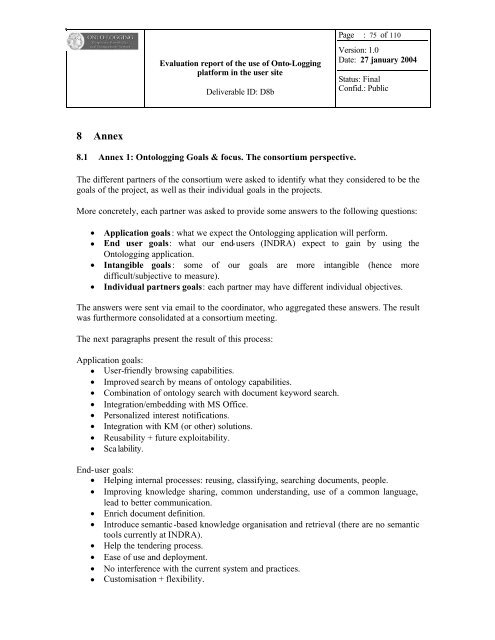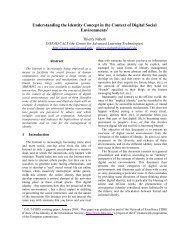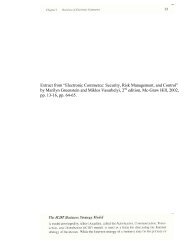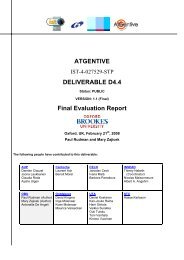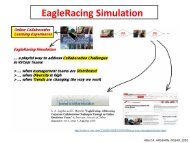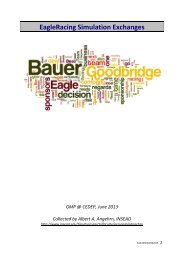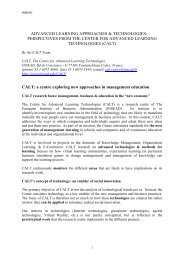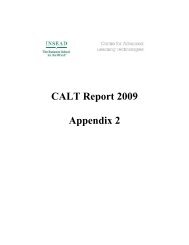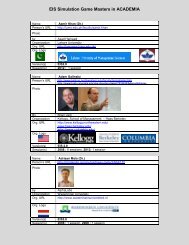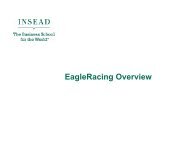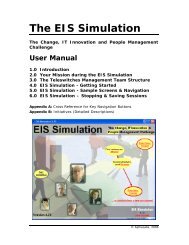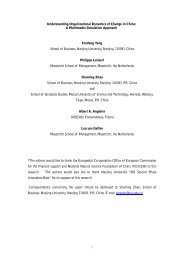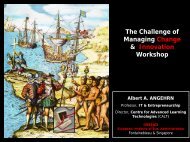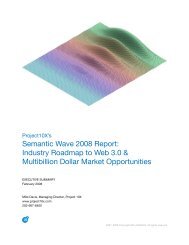pdf 820Kb - INSEAD CALT
pdf 820Kb - INSEAD CALT
pdf 820Kb - INSEAD CALT
You also want an ePaper? Increase the reach of your titles
YUMPU automatically turns print PDFs into web optimized ePapers that Google loves.
8 Annex<br />
Evaluation report of the use of Onto-Logging<br />
platform in the user site<br />
Deliverable ID: D8b<br />
8.1 Annex 1: Ontologging Goals & focus. The consortium perspective.<br />
Page : 75 of 110<br />
Version: 1.0<br />
Date: 27 january 2004<br />
Status: Final<br />
Confid.: Public<br />
The different partners of the consortium were asked to identify what they considered to be the<br />
goals of the project, as well as their individual goals in the projects.<br />
More concretely, each partner was asked to provide some answers to the following questions:<br />
• Application goals : what we expect the Ontologging application will perform.<br />
• End user goals: what our end-users (INDRA) expect to gain by using the<br />
Ontologging application.<br />
• Intangible goals : some of our goals are more intangible (hence more<br />
difficult/subjective to measure).<br />
• Individual partners goals: each partner may have different individual objectives.<br />
The answers were sent via email to the coordinator, who aggregated these answers. The result<br />
was furthermore consolidated at a consortium meeting.<br />
The next paragraphs present the result of this process:<br />
Application goals:<br />
• User-friendly browsing capabilities.<br />
• Improved search by means of ontology capabilities.<br />
• Combination of ontology search with document keyword search.<br />
• Integration/embedding with MS Office.<br />
• Personalized interest notifications.<br />
• Integration with KM (or other) solutions.<br />
• Reusability + future exploitability.<br />
• Sca lability.<br />
End-user goals:<br />
• Helping internal processes: reusing, classifying, searching documents, people.<br />
• Improving knowledge sharing, common understanding, use of a common language,<br />
lead to better communication.<br />
• Enrich document definition.<br />
• Introduce semantic-based knowledge organisation and retrieval (there are no semantic<br />
tools currently at INDRA).<br />
• Help the tendering process.<br />
• Ease of use and deployment.<br />
• No interference with the current system and practices.<br />
• Customisation + flexibility.


